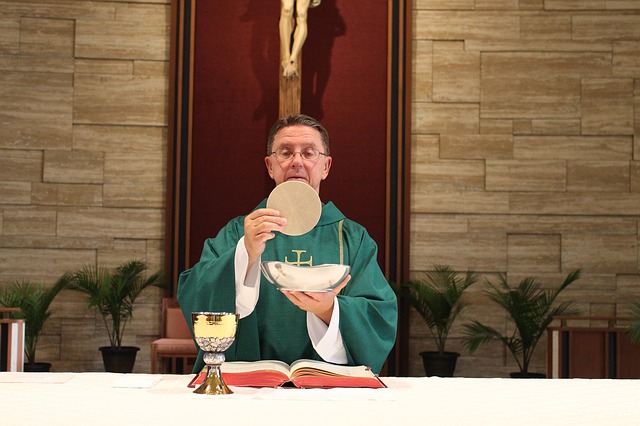
Why Priests Should Be Paid Bonuses
- By Derek Welch --
- 28 Mar 2018 --

A Different Approach to Declining Church Attendance
The Catholic Church is in a bit of a crisis. Even with the surging popularity of Pope Francis, the church is losing a large number of followers. Less than twenty percent of Americans regularly go to church. In addition, the number of priests has been shrinking, forcing a fewer number to have to cover multiple parishes, making a personal connection to the Church that much harder to maintain.
Why Priests Should Be Paid Bonuses[/tweetthis]
The solution may not come exclusively from a spiritual basis, but a business one. The Catholic Church should give priests bonuses. This does not mean priests should get money for doing something special. Money is one of the last motivators for the clergy: “Now I rejoice in my sufferings for your sake, and in my flesh, I am filling up what is lacking in the afflictions of Christ on behalf of his body, which is the church, of which I am a minister in accordance with God’s stewardship given to me to bring to completion for you the word of God.” (Colossians 1:24-25) But it can become an incentive system for priests to be rewarded for innovative thinking on how to spread their faith and build their community.
What would this look like?
Priests who are able to reach new inter-faith connections, draw in new parishioners, or establish new community service events would get additional funding from their Archdiocese. While individual members of a church can give direct donations, it is estimated only about six percent goes to that specific church. Therefore, even if a church is winning the financial support of the local community, it doesn’t always translate into large sums of cash. Additionally, this could be used to address the issue of priests who have to run multiple churches without any uniquely distributed funds.
The ability to reward programs could lead to them becoming models for other priests. World Religion News interviewed a founder of ChurchMarketingSucks.com, Brad Abare, who stated there are techniques that are not tried by many church officials because they might not be savvy in technology. Positive incentives have been shown to increase innovation and performance in the private sector, what makes this any different?
Of course, a committee would have to be established to ensure that it was not purely a hunt for numbers, but for authentic interactions within the community at large. Programs like Success For Youth in Cleveland that provide job and life skills training to younger members could be something that gets rewarded with additional funding.
While this happens at a larger structural level, there does not appear to be a consistent framework for rewarding individual priests, although there is a suggested payment window that individuals can give for specific ceremonies that a priest performs, like a wedding.
A priest could also refuse to take the funds. The Catholic Church has a provision where priests are given a base amount of money if they do not want to take stipends from individuals for performing ceremonies. The priest could have the option of the money being donated to a local charity.
Given the importance that Pope Francis has put on promoting social justice and community engagement this feels exactly in line with his mission. His reforms and consolidation of the Vatican Bank has also shown a desire to create more transparency with how funds are distributed within the Catholic Church. While money is not the solution, unique and powerful ideas need the ability to grow into larger movements.


















